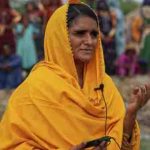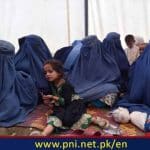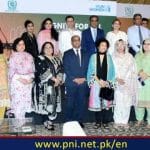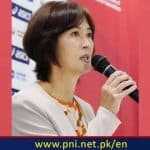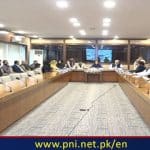UNITED NATIONS, Dec 03 : Peace is in peril worldwide and avenues for diplomatic dialogue are shrinking, but young women peacebuilders are demonstrating that a better world is possible, a senior UN official told the Security Council on Tuesday.
Rosemary DiCarlo, Under-Secretary-General for Political and Peacebuilding Affairs, was speaking during a debate on investing in the transformative power of intergenerational leadership on the women, peace and security agenda, where she urged the Council members to “open doors for the next generation”.
“Investments in women, peace and security agenda are not an option; they are a necessity for preventing conflict and achieving sustainable and inclusive peace,” she said.
Ms. DiCarlo listed Malala Yousafzai, the girls’ education champion from Pakistan and youngest Nobel Peace Prize laureate ever, climate activist Greta Thunberg from Sweden, and Ilwad Elman from Somalia who works to rehabilitate child soldiers and counter violent extremism, as examples of young women who are envisioning and demanding a world of justice and peace.
“These remarkable leaders remind us that transformation requires bucking the status quo,” Ms. DiCarlo said.
In this regard, she pointed to the UN Secretary-General’s policy brief on A New Agenda for Peace which calls for dismantling entrenched patriarchal systems that perpetuate inequality and exclusion.
“It underscores the urgent need to reimagine global power structures and place women and girls – especially young women – at the centre of our efforts to address the root causes of conflict and insecurity,” she said.
“If we do not break free from patriarchal norms, true peace and inclusive security will remain out of reach,” she warned.
Furthermore, the recently adopted Pact for the Future underlines the importance of ensuring that women’s leadership and participation are integrated into all aspects of conflict prevention and sustaining peace, she added.
Ms. DiCarlo highlighted three key areas in advancing intergenerational leadership: facilitating dialogues, fostering inclusive peace processes, and investing in young women’s leadership.
She said intergenerational dialogues are critical opportunities for building trust and articulating shared aspirations.
She cited an example from Chad, where the UN Peacebuilding Fund supported local dialogue platforms that brought together youth associations with traditional authorities. This ultimately strengthened social cohesion and reduced intercommunal tensions and conflicts in the Nya Pendé and Barh Sara regions.
Ms. DiCarlo also stressed the need to advance inclusive, multi-track peace processes that prioritize diverse groups of women, including young women, and promote their leadership and rights at every level. At the same time, she also recognized “the diverse and changing mediation landscape today”.
The UN Mission in South Sudan (UNMISS) hosts a workshop on key peace and security issues for Yei women and youth.
She recalled that during the Council’s annual open debate on women, peace and security, the Secretary-General launched an initiative that invites mediators from a cross section of society to join the UN in taking concrete actions to ensure women’s participation in peace processes.
Moreover, she noted that the UN actively backs multi-track efforts that promote peace from the bottom up, emphasizing young women’s leadership.
She witnessed this recently in Colombia, where the UN Mission verifying the 2016 peace deal supports women and men from all backgrounds and ages, addressing stigmatization of ex-combatants in reintegration areas.
“Third, our investments must be aligned with our priorities. Significant and sustained resources are essential to support young women peacebuilders and ensure their work flourishes,” she said.
For example, through a Peacebuilding Fund initiative in Somalia, young men and women worked together in managing and restoring water canals across clan lines, overcoming historical grievances and mitigating inter-clan conflicts driven by resource scarcity.
Ms. DiCarlo said that as the 25th anniversary of Security Council Resolution 1325 (2000) on women, peace and security approaches, along with the 30th anniversary of the Beijing Declaration and Platform for Action, “we must open doors for the next generation.”
“Together, we must cultivate leadership from the ground up, placing young women and women’s rights at the heart of our efforts,” she concluded.
The Council also heard from Tahani Abbas, a human rights defender, legal representative, and peace advocate from Sudan, where rival military forces have been locked in a brutal war since April 2023.
She said women have been on the frontlines of conflict response, creating “networks of resistance” such as Emergency Response Rooms that provide medical services, daycare, communal kitchens and more.
She was adamant that supporting women peacebuilders before, during, and after crises pays peace dividends.
“When the war broke out in Sudan, we found that the women who had participated in de-escalation and dialogue processes at the local levels prior to the war had used their skills and capacities to mediate, negotiate, and manage tensions and conflicts in their communities during the war,” she said.
Ms. Abbas called for the Council’s ongoing support to women “who are fighting for peace and security every day”, saying “even though it may be logistically and politically difficult, the decisions made within the United Nations will have a direct impact on the lives of the Sudanese population and women peacebuilders around the world.”
Follow the PNI Facebook page for the latest news and updates.



